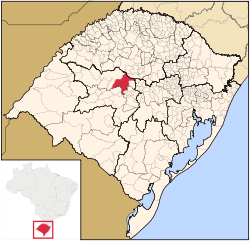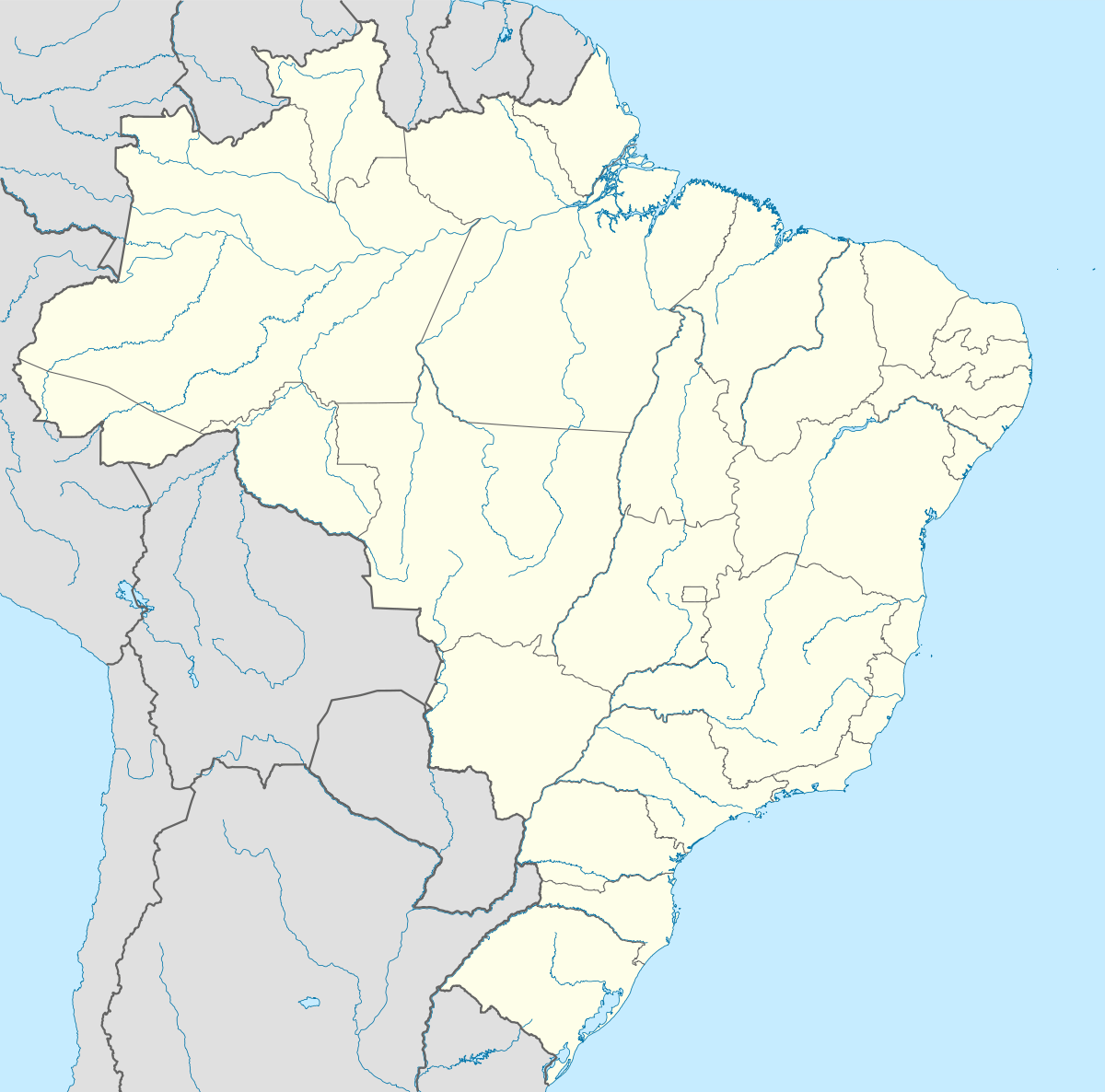Júlio de Castilhos
| Júlio de Castilhos | |
|---|---|
| Municipality | |
 Location in Rio Grande do Sul state | |
 Júlio de Castilhos Location in Brazil | |
| Coordinates: 29°13′37″S 53°40′54″W / 29.22694°S 53.68167°WCoordinates: 29°13′37″S 53°40′54″W / 29.22694°S 53.68167°W | |
| Country |
|
| Region | South Region |
| State | Rio Grande do Sul |
| Mesoregion | Centro Ocidental Rio-Grandense |
| Microregion | Santiago |
| Area | |
| • Total | 1,929.38 km2 (744.94 sq mi) |
| Elevation | 513 m (1,683 ft) |
| Population (2015) | |
| • Total | 20,052 |
| • Density | 10/km2 (27/sq mi) |
| Time zone | BRT/BRST (UTC-3/-2) |
| Postal code | 98130-xxx |
| Website |
www |
Júlio de Castilhos is a municipality of the central part of the state of Rio Grande do Sul, Brazil. The population is 20,052 (2015 est.) in an area of 1,929.38 km².[1] Its elevation is 529 m (Praça "João Vieira de Alvarenga"), 516 m at the meteorological station and 503.81 m at the railway station. It is located 627 km west of the state capital of Porto Alegre, northeast of Alegrete. The city is considered the Brazilian capital of the Charolais cattle.
History
The municipality is named after the Brazilian advocate, journalist and politician Júlio Prates de Castilhos.
According to historian Firmino Costa, the land of the modern municipality of Júlio de Castilhos, was Indian. The area was part of the Spanish empire until 1801 when it was annexed to Portugal. The first pioneers came from the states São Paulo and Paraná. In 1812 or 1813, João Vieira de Alvarenga a youth at around 24 years with his wife Maria Rosa de Morais and his first son Manoel, they claimed lands between the pioneer cities with the title Sesmaria in which it received in 1826. In 1834, the municipality of Cruz Alta was founded, separated from Rio Pardo. The today's municipality was created from the lands of the district of São Martinho within Cruz Alta. In 1876 with the emancipation of São Martinho, the district of Povo Novo was created. On July 14, 1891, the municipality of Vila Rica (the new name of Povo Novo) separated from São Martinho. Their first municipal elections were held in 1896 with Capitão Luiz Gonzaga de Azevedo as its winner and its first mayor. In 1905, the city was renamed to its current name Júlio de Castilhos.
References
External links
- http://www.citybrazil.com.br/rs/juliodecastilhos/ (Portuguese)